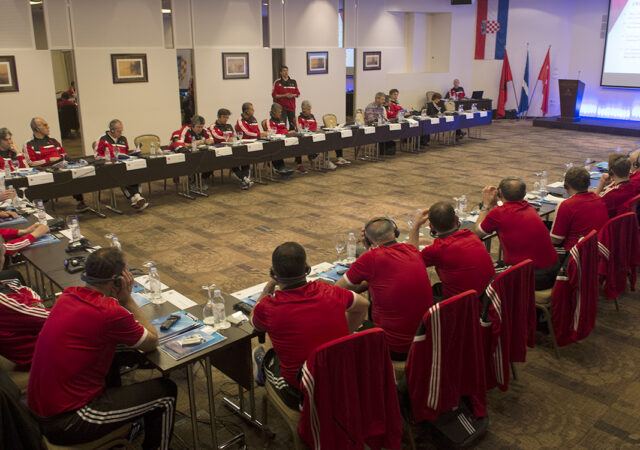
One who has knowledge knows no fear
Unlike a football game that is very conservative in terms of change, off-field shifts happen at high speed. This is best seen in demanding job of a football coach. In addition to standing behind the players, the coach is increasingly becoming a crucial figure in the club’s business success, regardless of whether it is about school, amateur or professional club. For quite some time now, the role of the coach has not been exclusively related to the team, but is constantly being supplemented and expanded. It no longer includes only technical-tactical aspects that are directly related to the field, but also psychological and pedagogical ones, all in order to cope with the growing demands of the modern game and players. The area of activities and responsibilities of coaches has been extended to communication with parents, solving the health problems of players, their training and education. In professional clubs, the role of the coach has been further expanded to relations with the media, sponsors, administrative management of the team, nutrition care, transfers and player contracts, club promotion, and taking part in determining the structure of the club.
When summarizing all the obligations a coach has, it is no coincidence that his abilities, knowledge and skills are being increasigly questioned by the clubs, because they prove to be crucial for the successful operation of football clubs. Football clubs are also increasingly establishing an organization system in which coaches are subject to daily learning. It is a new pattern of behavior that represents a major change in the traditional culture of sports management. A football coach is no longer a marginal educational resource but a significant source of new club value. Today, it is not easy to impose yourself as a leader to the new “Z” generation of players who check every move or word on the Internet, and at the same time are difficult in recognizing someone’s authority.
The fact is that coaches, just like managers and entrepreneurs, don’t have the necessary knowledge and experience needed to be able to manage players or employees after leaving college. Certainly part of the problem is that most of the schools nowdays teach Math, Physics, English, but do not teach social skills because the education system is based on suppressing human social skills. Therefore, it is necessary to constantly upgrade with new knowledge and skills after graduation.
FIFA and its worldwide associations invest huge sums of money each year in the education and training of their people. This is the key that has made football one of the most popular sports in the world for many years now. Namely, football associations have long recognized that the best investment is to acquire new knowledge and skills of coaches and referees. They are needed for better communication and management of players and for more efficient management of the training process.
Unfortunately, there is a large number of coaches who still think that by obtaining the “License” solely, they have soaked up all the football intelligence of this world and that they no longer need any further training. Needless to say, this is a big mistake, because with such an attitude and approach, the most damage done has been done to themselves.
Getting to the top of the ladder in coaching is a difficult and complicated journey that requires a lot of effort and patience. How many locks more need to be unlocked after obtaining a “License”. It would be ideal (but fortunately it’s not) if football coaches could use the same key to obtain a “License” and to open all the other locks on their way to full football attestation. “Communication”, “interpersonal relationships”, “character”, “temperament”, are just some of the locks that need to be unlocked along the way.
After opening each lock of knowledge (skills) you will be happier, more satisfied, more optimistic and most importantly more confident in yourself.
One who has knowledge knows no fear.
